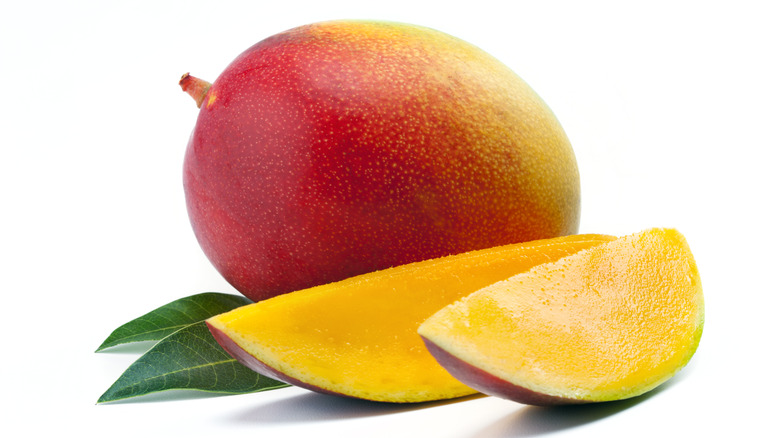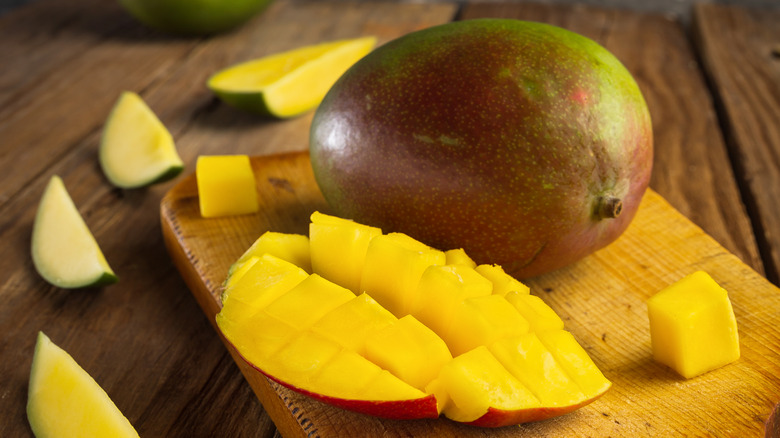The Scientific Reason Mangoes Make Some People's Mouths So Itchy
While there are several common food allergies such as peanuts, shellfish, milk, and wheat, there are also some uncommon food allergies that you may not have heard of. Some people can develop an allergy to red meat, while others may be allergic to certain spices, like cinnamon or mustard. One allergy, though, has an odd term associated with it — mango mouth. Mango mouth is a phrase used to describe the oral allergic reaction that some people experience after eating mangoes.
This type of allergic reaction occurs when the immune system has an adverse reaction to proteins in certain fruits and vegetables, and it is similar to pollen allergens. In the case of mangoes — ripe or otherwise — the fruit contains a protein called urushiol, which is also found in poison ivy and poison oak. This protein can cause you to have an itchy or tingly sensation in the mouth if you are allergic or have a sensitivity.
Understanding urushiol
Of course, not everyone who eats highly nutritious mangoes will experience an allergic reaction, and the severity and types of symptoms can vary from person to person. Some people may only experience mild itching or tingling in the mouth, while others may have symptoms that require medical attention. Other symptoms of a mango allergy include swelling or redness in the mouth, lips, or tongue; hives or rash on the skin; stomach discomfort; or even difficulty breathing. These symptoms can occur within minutes, or up to hours after eating a cut mango, and may last for several hours to a day due to the urushiol.
This organic compound is found in all parts of the plant, including the leaves, stems, and roots, so you don't even have to eat mangoes to come into contact with it. Urushiol can remain active for long periods, even on objects like clothing or shoes that have come into contact with it. Some people are more sensitive to urushiol than others, and repeated exposure to the substance can increase sensitivity in some people, and it can decrease it in others, according to Healthline. Your sensitivity to urushiol can even change over time, so you can develop an allergy to mangoes even if you have never had one before.
Dealing with mango allergy symptoms
The best way to get rid of mango mouth is to avoid mangoes, of course, but if you don't have severe symptoms and you want to enjoy the tropical fruit, there are other things you can do to manage your allergy. Drinking water or rinsing your mouth can help wash away any remaining mango residue, which may reduce symptoms. If you have a low sensitivity to mangoes, you can still enjoy them in various recipes, too, like a mango berry lime smoothie or mango chutney. The smaller the doses of the fruit, combined with other foods, will help reduce the symptoms if they are not serious.
If your symptoms are a little more severe, though, over-the-counter antihistamines can relieve itching and other allergy symptoms. If you have a rash or hives around your mouth or other areas of your face or chest, there are topical ointments that can help. However, if you experience severe symptoms like difficulty breathing after eating mangoes, it's best to consult an allergist to determine the cause and appropriate treatment and avoid the fruit in the meantime.


